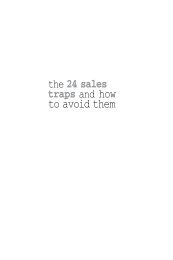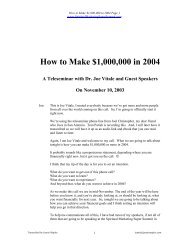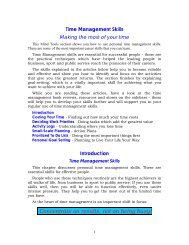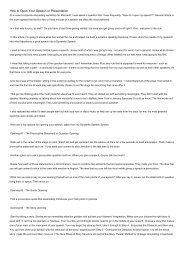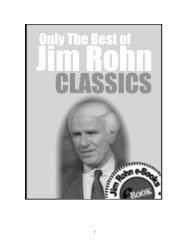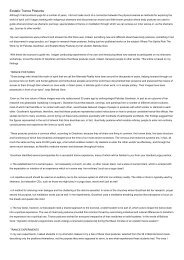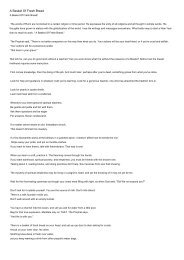Executive Coaching - A Guide For The HR Professional.pdf
Executive Coaching - A Guide For The HR Professional.pdf
Executive Coaching - A Guide For The HR Professional.pdf
Create successful ePaper yourself
Turn your PDF publications into a flip-book with our unique Google optimized e-Paper software.
44 EXECUTIVE COACHING<br />
............................<br />
Information Sharing. When being coached, the client will share<br />
delicate private and corporate information with his or her coach in<br />
order to explore developmental opportunities. Naturally, this situation<br />
may cause concerns from the client’s perspective as well as<br />
from the coach’s perspective. A client might wonder who else has<br />
access to the information. How can he or she be assured that the<br />
information is not shared with someone he or she doesn’t trust?<br />
Who knows that he or she is being coached? Will the information<br />
shared have an impact on promotion or salary?<br />
<strong>The</strong> coach, who is usually paid by the client’s organization, faces<br />
a different conflict: Am I obliged to share a progress report with my<br />
client’s supervisor, Human Resources, or the sponsor? If so, how<br />
much do I go into detail? Who in the organization has to be informed<br />
if my client shares information about illegal wrongdoings involving<br />
either the client or other organizational members? All these concerns<br />
are legitimate and must be addressed in the contracting stage before<br />
attempting to build a trusting, open relationship.<br />
If the client believes that the coach is sharing private information<br />
or if the coach feels caught up in an organizational power struggle,<br />
the relationship is likely to crumble. Confidentiality is therefore<br />
both an ethical and a practical issue.<br />
Ethical Standards. Whereas doctors, lawyers, and priests, whose professions<br />
require dealing with personal information, are bound by the<br />
law to apply certain ethical standards, there are no explicit laws in<br />
that regard applicable for coaches. <strong>For</strong> those coaches who are<br />
psychologists, the ethical standards concerning disclosures in the profession<br />
of psychology apply. Although the coach has to try to make<br />
every effort to honor the client’s confidence, the coach can not provide<br />
a guarantee. Clients need to be informed that their information<br />
is not privileged under law.<br />
Best Practice. In order to avoid conflicts, the coach is well advised<br />
to discuss the issue of confidentiality up-front with the client. By<br />
making the client aware that there are usually other stakeholders





